12 Ways to Organize Your Life to Read More — Part 2 (Reading Lists, Challenges & Ice Cream Samples)
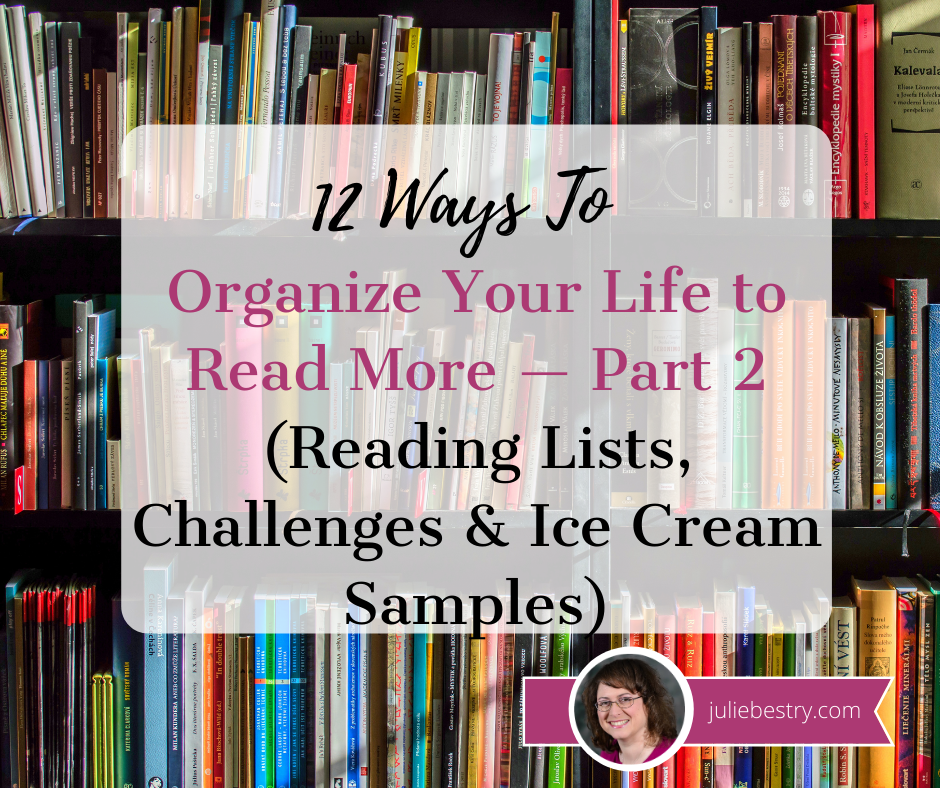
Last time, in 12 Ways to Organize Your Life to Read More — Part 1, we discussed the first six ways to create order in your space and schedule so you can read more.
- Gather your TBR (to be read) collection.
- Schedule your reading time.
- Create physical space for reading.
- Replace a habit with reading.
- Read with others.
- Be part of a cultural experience.
Today, the list continues with six additional ways to encourage reading more of the things you want and get more enjoyment out of the experience.
7) Develop a reading list with great recommendations.
Having that TBR list of books is helpful if you’ve already laid in a supply of next-up titles, but what if you don’t know what you want to read? Goodreads’s Listopia is a great source for pre-existing lists collated from site-wide recommendations, everything from compelling suggestions in Best Time Travel or Best Non-Fiction of 2019 to celebrities’ (and other individuals’) own curated lists, like James Patterson Recommends His Favorite Thrillers to Glennon Doyle’s Books for Challenging Times.
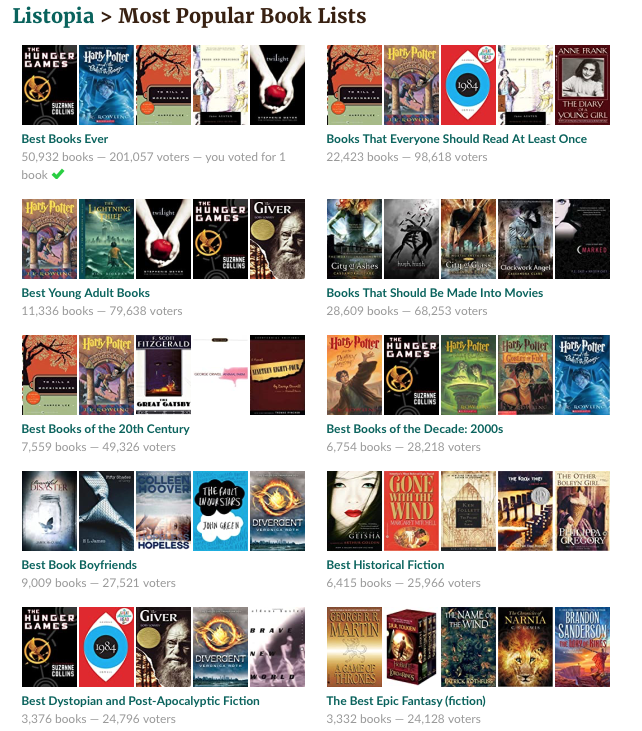
Public library websites have reading lists developed by librarians. And just Googling a topic you’re more interested in will help you find great options. For example, when I typed “anti-racist reading lists” into the search box, I got over 33 million hits, and just selecting the top three yielded sources for a good start:
- New York Times: An Anti-Racist Reading List (compiled by Ibram X. Kendi)
- Phoenix Public Library: An Anti-Racist Reading List (compiled by librarians)
- WBUR-FM, Boston: A Reading List on Race for Allies Who Want to Do Better (compiled by Arielle Gray)
Famous people have famous reading lists. Previously, presidents have made their reading lists public, such as here, and here. Productivity author James Clear maintains a website called 100 Good Books To Read, which recommends far more than 100 books, with lists broken down by category. Billionaire Bill Gates maintains an entire section of his GatesNotes blog for discussing the books he recommends.
There’s even a website called The Reading Lists, collating everything from “Best Tear Jerkers” to “The Most Important Books on Dinosaurs” to “Must Read Books for Aspiring Writers.” Whether you want to find more books like the ones you love, or you want to explore a new genre, there are book lists to serve your needs.
You can also get great recommendations from blogs, podcasts, and apps. For example:
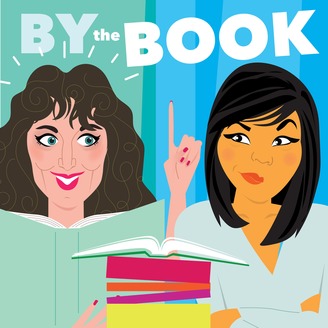
By The Book Podcast – Imagine if you combined a self-help reality show with a podcast about book reviews. For each episode, podcast veterans Jolenta Greenberg and Kristen Meinzer (along with their long-suffering and fan-favorite husbands) summarize a self-help book and then live by the precepts of that book for two weeks.
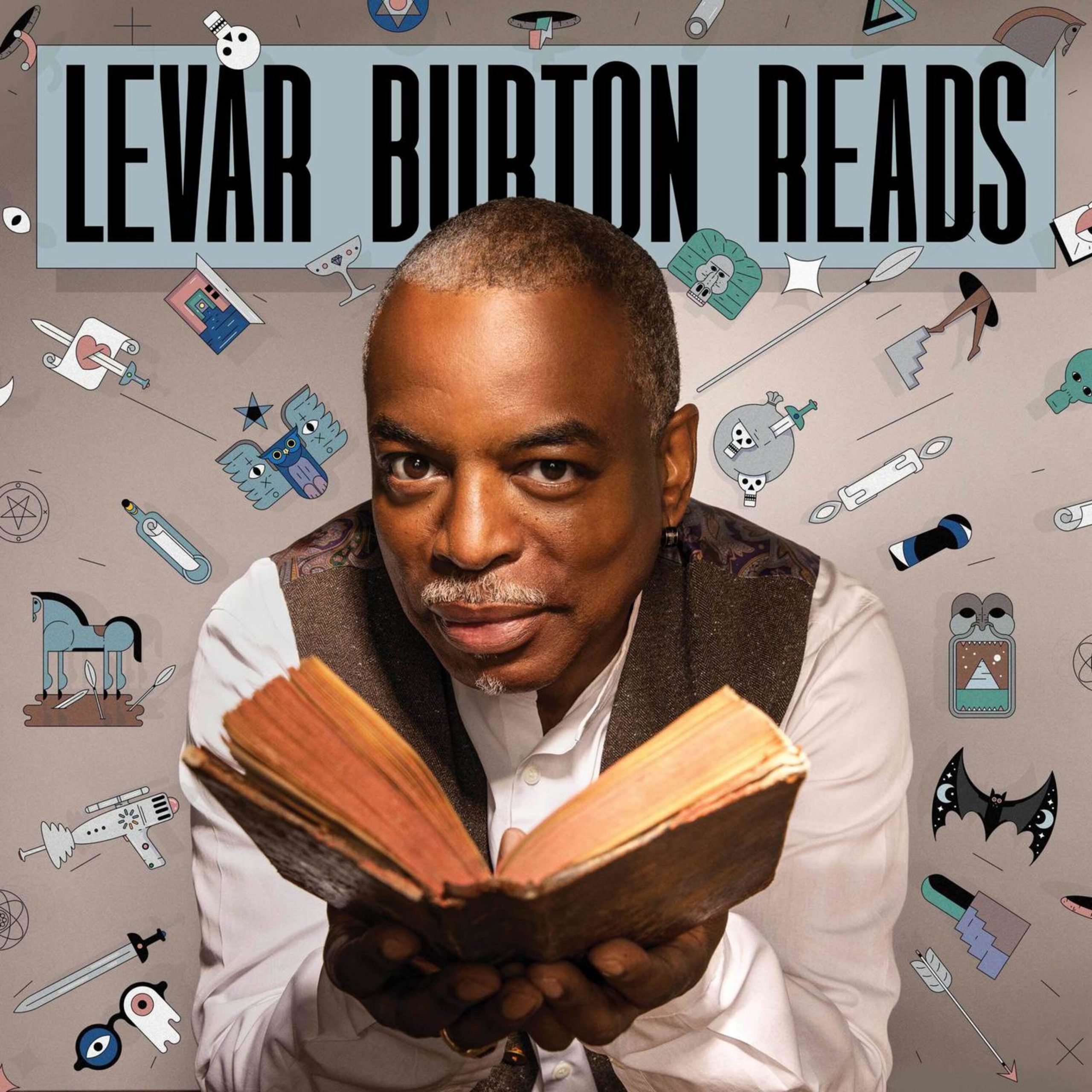
LeVar Burton Reads – Yes, the same Reading Rainbow star who spent 26 years helping get kids excited about reading has an inspiring reading-themed podcast for adults. In each episode of LeVar Burton Reads, now in it’s third year, Burton reads (in the same soothing voice that captivated generations) a piece of short fiction he chooses himself, in genres ranging (in his own words, in a 2017 interview with The New Yorker), “from fantasy to mystery to comedy and, of course, my go-to, science fiction.” Authors represented on the podcast have included Octavia Butler, Joan Aiken, Ray Bradbury, N.K. Jemison, Neil Gaiman, Haruki Murakami, and more.
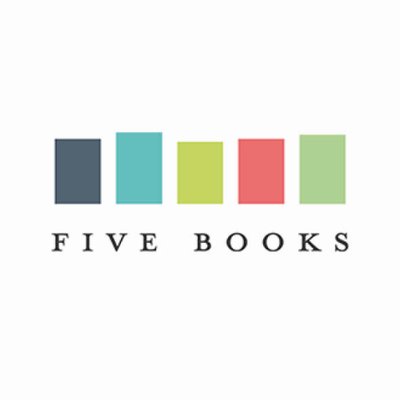
Five Books – What if, when you wanted to read a book, you could ask experts on that topic what you should read? That’s the premise of Five Books, with an archive of more than one thousand interviews and five thousand book recommendations, offering two new interviews each week. For example, humorist Andy Borowitz gives his list of the best books on comic writing, while biographer Andrew Roberts offers up the best books on Napoleon.
Non-fiction topics cover art, business, economics, history, health and wellness, language, philosophy, politics, psychology, religion, sports, technology and more, and include titles for children as well as adults. Fiction-related recommendations run the gamut of genres from classic and contemporary literature to literary criticism, from crime and mystery to romance and horror, and from poetry to science fiction.
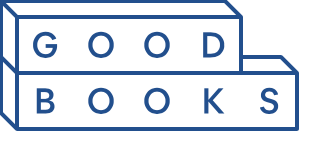
GoodBooks – This site describes itself as “Books recommended by successful people” – with 8500+ recommendations from “the most successful and interesting people in the world.” A little self-aggrandizing? Maybe. But the experts hail from media, technology, journalism, science, education, venture capitalism, design, entrepreneurship, activism, and other professions, and they recommend titles ranging from classics to some of today’s best-sellers, and there’s even a Top 100 most-recommended list. (Is 100 too daunting? How about just enough titles to read a book a month with GoodBooks’ top 12 list?)
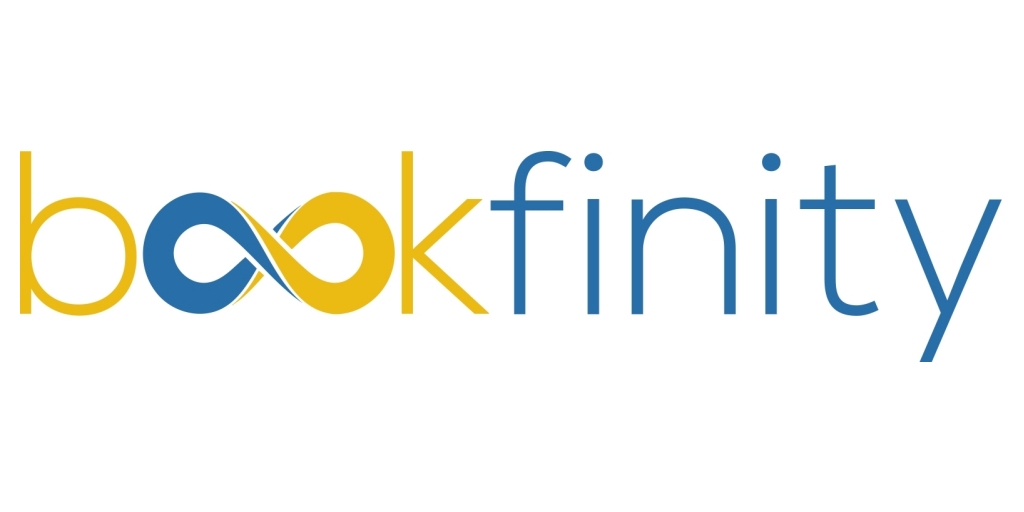
Bookfinity – Perhaps you’re less interested in what the experts like to read and would prefer a fairy godparent to zap up the perfect read for you? Bookfinity uses the quirkiness of those social media “Which Marvel superhero are you?”-type quizzes to create recommendations customized for your reading preferences. (One note: you must create an account to access recommendations.) Once in the system, you can rate whether you like or hate Bookfinity’s recommendations for you, improving the algorithm.
8) Change formats.
I am a book snob. I like the weight of a real book, and want to be able to flip back-and-forth, check the “feel” of how many pages are left until the end of the chapter or the book, and even stop to look at the author photo. I tend to forget about books I’ve downloaded to the Kindle app on my iPad, whereas my To Be Read shelf is near and always reminding me what’s next. And honestly, unless I’m listening to an audiobook with a compelling plot, I tend to daydream.
But I grant you – sometimes, you just need to change it up.
You can’t (safely) read a book in the bathtub, but you can put your Kindle (or other ereader) in a zip-lock bag and read until your fingers get prune-y. Your local bookstore or even online shop may run out of stock, but ebooks and audiobooks are available at the click of a button.
During the first four months of the COVID-19 pandemic, my public library was closed and I couldn’t get my usual hefty pile of books. But you know what I could do? I could sit in my PJs at 2 a.m. and borrow digital copies of books at no cost by using my library’s digital platforms like Hoopla, Overdrive (accessible via the Libby app), and RBDigital to acquire books, ebooks, and audiobooks. (They also have magazines, comic books, albums and movies.)
And sometimes, you need a little support. Storyline Online, sponsored by the Screen Actors Guild, features celebrities (like Rita Moreno, Lily Tomlin, Rami Malek, and Kevin Costner) reading children’s books. That might be just what you need to save yourself from another night of reading your tiny human Hop On Pop on repeat, perhaps even giving you time to read your own books.
Experiment to see what book formats you find compelling. If listening to a novel while you cook or drive means you’ll get to submerge yourself in a story you’d otherwise miss, isn’t it worth trying?
9) Track Your Reading
You may wonder how tracking your reading helps you read more. But the more you measure your effort, the more inclined you are to improve that effort. Also, keeping track of what you’ve read prevents you from accidentally buying or borrowing (and then reading) the same book more than once.
The no-effort way to track your reading is to keep your read and to-be-read books separate. Once a book is completed, move it to the “read books” area. Of course, I wouldn’t be much of a professional organizer if I didn’t encourage you to let go of books you’ve read and have no intent (or desire) to read again. But if you let go of books to prevent them from piling up, there’s not much of a record of what you’ve read. However, there are other options.
Keep a reading journal. Take quick notes in your phone or keep track of your reading habits, favorite quotes, and thoughts on what you’ve read in a bullet journal.
Log your books digitally. Opt for something simple, like a sortable Excel or Google spreadsheet. There are also myriad book journaling apps, like Book Log, ReadingList, and Litsy.
Track what you’ve read in a website that lets you log, rate, and review books. I like how Goodreads lets me create a pathway for tracking books. When I hear of a book I might like to read, I enter it in the search box; when it comes up, I click “Want to Read.” If I start reading, I change the status to “Currently Reading” and later to “Read.” Then I can give it from one-to-five stars and write a review.
Marking the book as “Read” puts it into a chart of “My Books,” which I can sort by title, author, average rating, my rating, date I added it to my account, and date I finished reading it. I can also view and edit my reviews from this page, and change the virtual shelf on which I’ve put it. You can add your own shelving categories. Mine include, “Books by My Friends and Colleagues” and “Books That Would Make Good Gifts.”
Logging books comes in handy when someone asks me what I thought of a book. One of my favorite fiction genres is time travel; when you read a lot in one genre, it’s easy to confuse the plots, so seeing my ratings and reviews helps. It also helps me find titles I want to recommend. Recently, a friend told me that her daughter likes reading “art theft” books like Chasing Vermeer. I remembered that I’d accidentally read a book for younger readers along those same lines, but couldn’t recall the author. One quick scroll through the my reading list and I found Walls Within Walls, which I’d read in 2011!
10) Participate in Reading Challenges
I walk for exercise, but until I got a Fitbit, I never stuck to one regimen for very long. For a while, just trying to hit 10,000 steps a day kept me at it, but at the start of 2020, my best friend and I started doing the Workweek Hustle Challenge, where we “compete” (gently) against one another on steps counted. Her son recently joined in and invited us to to achieve certain measures of steps, miles, and minutes of exercise on Fitbit’s BINGO card contests.
Similarly, while I enjoy practicing my Italian lessons on Duolingo, keeping my travel partner’s score (each week, if not daily) gives me that extra boost.
Goodreads runs a challenge where you announce to your friends how many books you intend to read for the year; watch your ticker count up as you read, and note whether you are “ahead” or “behind” for the year. Book bloggers run some pretty famous challenges where you can amass different types of reading experiences: read a book in translation, read a book in a genre you’ve never explored, read a book with fewer than 100 (or more than 1000) pages, etc. You might want to try:
- The Modern Mrs. Darcy 2020 Reading Challenge
- 52 Books In 52 Weeks (multiple challenges)
- World Reading Challenge: Books Around the Globe 2020 (from Tale Away)
- The Master List of Reading Challenges from Girl XOXO (with a fancy and complex tracking spreadsheet to log all of the reading you do for all of the challenges in which you participate)
- Epistolary Reading Challenge (I love a book written in letters!)
- Newberry Reading Challenge (to read Newberry- & Caldecott-winning children’s books)
- Pop Sugar Reading Challenge (There’s also a Summer 2020 challenge.)
- Penguin/Random House #Read20In20 Reading Challenge
11) Read Books About Reading Books
Although it’s not everyone’s cup of tea, I find that reading books about the enjoyment of books boosts my enthusiasm when I’m not feeling up for adventurous bout of reading. Author-Librarian Nancy Pearl, who is so beloved among readers that she has her own action figure, has made a name for herself with her Book Lust series (Book Lust, More Book Lust, Book Lust to Go, and Book Crush), collections that recommend books for every taste, moment, and mood.
Consider books that recommend titles based on books you like or experiences you’re going through, such as Ella Berthoud and Susan Elderkin’s The Novel Cure: From Abandonment to Zestlessness – 751 Books to Cure What Ails You, Mirchael Dirda’s Browsings, and Sandra Newman and Howard Mittelmark’s snarky Read This Next: 500 of the Best Books You’ll Ever Read.
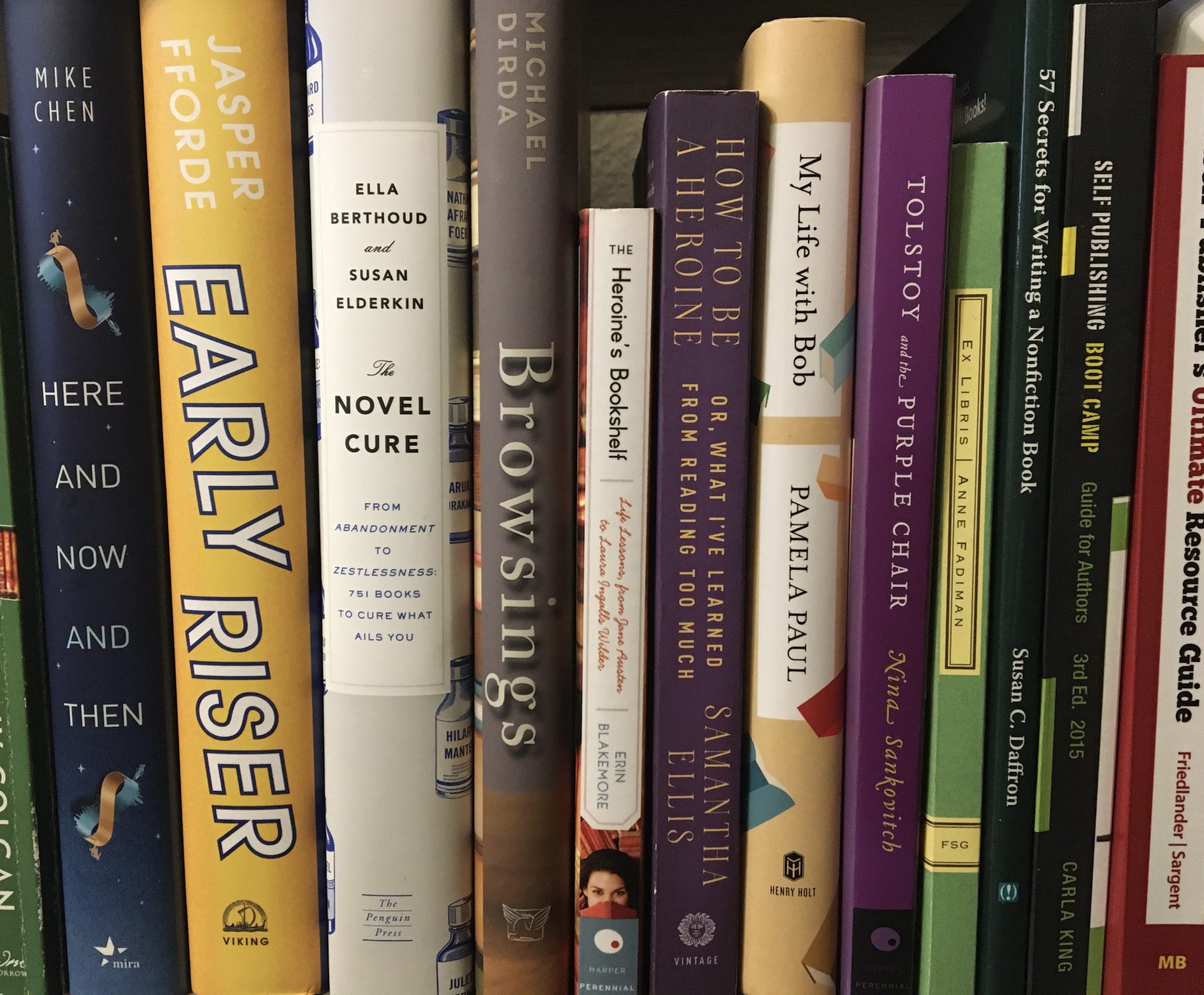
For years, novelist Nick Hornby had a monthly column in the Believer where he detailed the books he’d bought and the books he’d read (with minimal crossover in any given month), and combined short-term memoir and (award-winning) criticism. The columns were collecting in a series of books, including The Polysyllabic Spree, Shakespeare Wrote for Money, and Housekeeping vs. The Dirt.
Finally, there are just some great books of essays about books. The best, for my money, is Anne Fadmian’s Ex Libris: Confessions of a Common Reader, but my TBR still includes:
- My Life With Bob: Flawed Heroine Keeps Books of Books, Plot Ensues
- The Heroine’s Bookshelf: Life Lessons from Jane Austen to Laura Ingalls Wilder
- How To Be a Heroine: Or, What I’ve Learned from Reading Too Much
12) Develop an appetite with an ice cream sample.
No matter how many recommendations you get, sometimes, you just have to sample the material to know if it’s a good fit.
One trick is picking a specific page number, say page 53, and checking out the writing style without any preconceived notions of the book. If that random page appeals, it’s a good sign. We’re not spending much time in brick & mortar bookstores these days, though, so another option is the “Look inside the book” feature at Amazon, which allows readers to read introductions, tables of contents, and sample chapters to get a sense of whether a book is a good fit.
It can be difficult to find a compelling non-fiction book, especially for professionals with so many buzz-wordy titles vying for their attention. For them, there are online services that allow you to sample books by getting summaries of the material.
Next time, we’ll be looking in-depth at sites like Sipreads, 12 Minutes, Read It For Me, Blinkist, and more to help you get a birds’-eye-view of important non-fiction titles and find the books most worthy of you investing your reading minutes.
Until then, happy reading!




Thank you! I enjoy reading fantastical fiction on my Kindle before bed. Sometimes I dread finishing a book because I have to hunt for my next read. These lists will help.
Be sure to let me know if you discover any great reads!
Wow wow wow! I’ve been doing Modern Mrs. Darcy’s Reading Challenge for a few years and forgot that you’re the one that introduced me to her until I read this. So many resources to explore! I’ve done the Bookfinity quiz and eagerly await my results, and have pinned this (as well as Part 2) to my Reading Rocks! board on Pinterest for future reference.
Thank you for pinning, and for commenting! I love reading your reviews on Goodreads!
Just an update – not happy with Bookfinity. They sent too many emails and I got that under control, but this week they sent me a message about a new list they’ve started, and since I was interested in that topic I signed up, and they immediately starting emailing me from every one of their dozen or so lists. I deleted my account and the emails are still coming. I have marked every one as spam.
That’s weird. I joined one list (Time Traveler) and only receive mail (monthly, at most) from that list and very occasional “hey, we’re doing this thing now” emails, also about once a month. I did get something from them yesterday and again something today, which was odd, but I haven’t been signed up for multiple lists. That’s obviously frustrating. Thanks for letting me know.
Another great post about reading! I love my kindle, but also like a paperback for when I want to read outdoors. Nothing like sitting on the beach with a book.
I subscribe to BookBub and Fussy Librarian, were I get downloadable books for cheap or free. I like the minimal commitment, downloading and deleting quickly if I don’t “get into” a book within a first say 50 pages. I recently got a free subscription to Readitfor.me. Can’t wait to hear what you think of it.
Ooh, Fussy Librarian is a new one for me. I mostly like my subscription to ReadItForMe, though I wish there were more variety in the narrators. It’s always the same guy. But more on that in next week’s post!
Thanks for commenting!
Another book about reading books is one that you, Julie, recommended to me: I’d Rather Be Reading: The Delights and Dilemmas of the Reading Life, by Anne Bogel. It was a quick read that stimulated a fun book club discussion!
Hazel, it delights me that you enjoy Anne’s book so much. Since I was mentioning her blog, I didn’t want to double-dip and include the book, as well, but yes, reading about reading makes me want to read! 😉
Jules!
This is an absolutely fantastic post.
I’m fond of podcasts and I am particularly fond of two: The New Yorker: Fiction and The New Yorker: The Writer’s Voice. I like both podcasts because an author is reading a short story to listeners. #heaven
These two podcasts have introduced me to many new authors I would have never found on my own. I have become a total junkie for short stories. (Who knew?)
Through podcasts I’ve discovered a zillion entertaining stories to read if I’m looking for alternatives to books. Short. Sweet. Interesting. #VarietyIsTheSpiceofLife
Thank you for these posts.
What a delight! I almost wrote a thirteenth section on experimenting with different writing types (poetry for the non-fiction reader, short stories for the novel lover). Other than Dorothy Parker’s stuff, I’ve never gotten into short stories, so I’d love know what you’re reading!